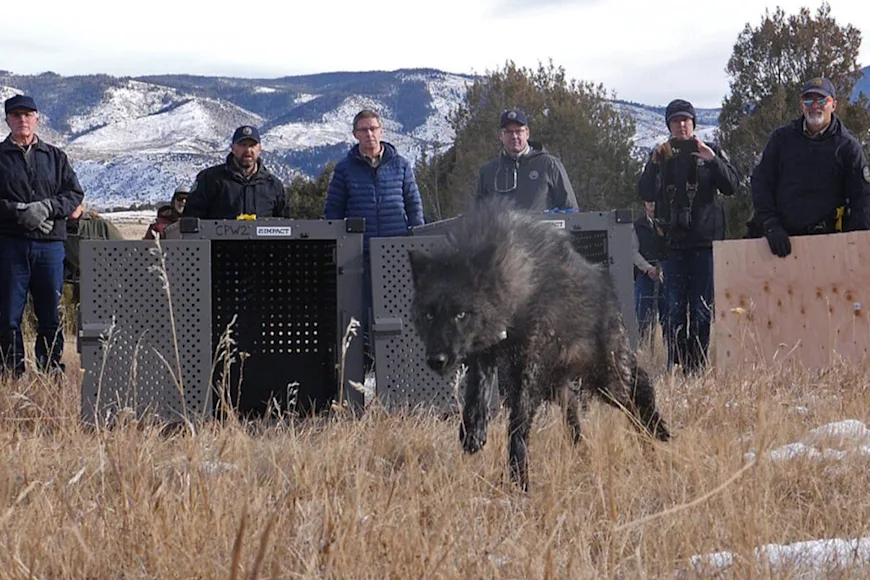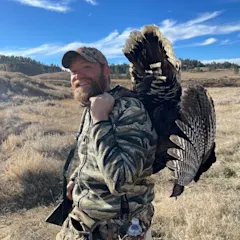Colorado's wolf reintroduction program is mired in yet another controversy. In a short press release issued on the evening of August 27, Colorado Parks & Wildlife (CPW) said the agency is enlisting help from the federal government to capture and relocate the state's very first transplanted wolf pack after the animals repeatedly preyed on cattle, sheep, and other livestock.
“The decision to capture and relocate the Copper Creek pack was made with the careful consideration of multiple factors and feedback from many different stakeholders,” CPW Director Jeff Davis said in the statement. ”Our options in this unique case were very limited, and this action is by no means a precedent for how CPW will resolve wolf-livestock conflict moving forward. The ultimate goal of the operation is to relocate the pack to another location while we assess our best options for them to continue to contribute to the successful restoration of wolves in Colorado.”
CPW released two of the wolves that now make up the Copper Creek pack in Grand County on Dec. 31, 2023. Ranchers and hunters have widely opposed the state's release program, which was mandated by a narrowly-approved ballot measure back in November 2020. CPW has confirmed a total of 16 wolf attacks on livestock in areas near the pack's den site since releasing them.
The plan to relocate the Grand County wolf pack appears to honor the wishes of ranchers in the area who issued a public letter earlier this month asking Colorado Gov. Jared Polis and CPW's Davis to remove the wolves in light of the recent attacks. It also drew the ire of animal rights groups, like the Washington, D.C.-based Defenders of Wildlife, which issued a press release condemning the plan shortly after CPW made its announcement.
According to the Ft. Collins-based Colorodoan, the Copper Creek pack is made up two adult wolves and a handful of pups born last spring. Authority to capture and remove the wolves comes via a federal rule issued by the U.S. Fish & Wildlife Service known as 10 (j). Under the 10 (j) rule, Colorado's transplanted wolves are considered a nonessential, experimental wildlife population. 10 (j) designation gives state and federal land managers more leeway in dealing with problem wolves within the borders Colorado—despite the animal's status as a federally endangered species in the Lower 48.
CPW says it won't reveal the location where they plan to drop the Grand County wolves, citing concern for "the safety of the animals and agency staff." In a recent wolf update sent out via email, the agency said that all transplanted wolves remain north of I-70 and that 9 of the 10 that were released back in late 2023 are still alive.
The state is still working to secure wolves for future releases after indigenous tribes in the Pacific Northwest recently withdrew from an agreement to do so. The Colville Tribes said they withdrew from that agreement after Colorado failed to consult members of the Southern Ute Tribe about impacts that transplanted wolves could have on deer and elk herds on the Southern Ute Reservation, in the southwestern corner of the state.


